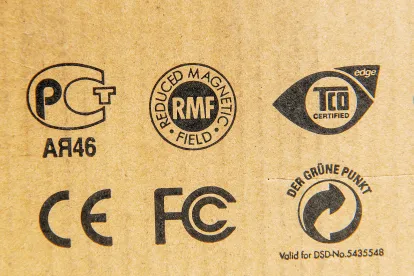The wireless industry has revolutionized the way we connect, from facilitating teleworking, distance learning, and telemedicine to allowing the American public to interact virtually in almost all other aspects of their daily lives. Leading policymakers – federal regulators and legislators – are making it a top priority to ensure that the wireless industry has the tools and resources it needs to keep pace with this evolving landscape. This blog provides monthly updates on actions by federal regulatory bodies responsible for communications policy and Congressional efforts to support wireless connectivity. And this month we highlight the recent events occurring at the 2023 World Radiocommunication Conference.
Regulatory Actions and Initiatives
The World Radiocommunication Conference Concludes. After weeks of negotiations, the International Telecommunication Union’s (“ITU’s”) World Radiocommunication Conference of 2023 (“WRC-23”) in Dubai concluded on December 15, 2023. These conferences are held every three to four years and include discussions from nations around the world about the international regulation and coordination of spectrum use. At WRC-23, pivotal decisions were made to support the deployment of wireless services, including the harmonization of the 3.3-3.4 GHz and 3.6-3.8 GHz bands for mobile 5G services as well as the identification of the 6 GHz band in every ITU region for licensed mobile services. FCC Chairwoman Rosenworcel released this statement on WRC-23 in which she highlighted that “[t]he delegation’s accomplishments will promote innovation in unlicensed spectrum including Wi-Fi, support 5G connectivity, pave the way for 6G, and bolster U.S. leadership in the growing space economy.” Commissioner Gomez, who previously led U.S. preparations for WRC-23 before she joined the FCC, commented that “[t]he delegation’s accomplishments on terrestrial licensed and unlicensed spectrum as well as space allocations will advance science and economic prosperity worldwide.”
Wireless Spectrum
The FCC Adopts Deadlines for Submitting C-band Claims. On December 15, 2023, the FCC’s Wireless Telecommunications Bureau (“Bureau”) released a Public Notice adopting two final deadlines by which eligible incumbents in the 3.7-4.2 GHz band (known as the “C-band”) – i.e., those incumbents that are eligible to receive expenses for relocating from the spectrum so that it may be made available for commercial wireless services – are required to submit any outstanding transition-related claims to the C-band Relocation Payment Clearinghouse (“RPC”). Specifically, as proposed by the RPC and supported by the satellite operators and wireless carriers in the band, all reimbursement claims for costs incurred and paid by claimants as of December 31, 2023, including all lump sum election claims, must be submitted to the RPC by February 5, 2024. In addition, as proposed by the wireless carriers, all reimbursement claims for costs incurred and paid by claimants after December 31, 2023, must be submitted to the RPC by July 1, 2024 (instead of September 30, 2024, as proposed by the RPC). The Bureau strongly encourages any impacted claimant to submit claims incurred after December 31, 2023, within 30 days of payment and not wait until July 1, 2024, to do so. For costs that may be incurred and/or paid after July 1, 2024, claimants should submit a claim before the deadline “with the best supporting documentation and information available at that time” and work with the RPC on a process and timeline for submitting any additional documentation that the RPC may deem necessary. Claims that are not submitted in the relevant manner by the relevant deadline will be untimely, and the RPC will not process or reimburse such claims.
The FCC Initiates a Proceeding to Promote Wireless Services in the 24 GHz Band. On December 22, 2023, the FCC released a Notice of Proposed Rulemaking seeking comment on proposals to align its rules for the 24.25-24.45 GHz and 24.75-25.25 GHz bands (together, the “24 GHz band”) with decisions made at the World Radiocommunication Conference held by the ITU in 2019. The proposals seek to promote the deployment of commercial wireless services in the 24 GHz band while protecting passive sensors used in the adjacent 23.6-24.0 GHz band for weather forecasting and scientific research by limiting unwanted emissions into that band from the 24 GHz band. Comments and reply comments will be due 30 and 45 days, respectively, after the Notice of Proposed Rulemaking is published in the Federal Register, which has not yet occurred.
Wireless Networks and Infrastructure
The FCC Reminds Rip-and-Replace Support Recipients of the Status Update Deadline. The FCC’s Wireline Competition Bureau released a Public Notice on December 7, 2023, reminding all Secure and Trusted Communications Networks Reimbursement Program (“Reimbursement Program”) recipients of their obligation to file a status update with the FCC by January 8, 2024. Reimbursement Program support recipients are under the continuing obligation to file status updates every 90 days until they file their final certification.
Legislative Efforts
President Biden Signs the 5G SALE Act Into Law. On December 19, 2023, President Biden signed into law the 5G Spectrum Authority Licensing Enforcement Act (“5G SALE Act”), which grants the FCC temporary authority to issue the remaining licenses won in the 2.5 GHz auction (Auction 108). Senator John Kennedy, who introduced the 5G SALE Act, praised enactment of the legislation and noted that the 5G SALE Act will “provide crucial broadband access” and give “more Americans . . . the tools they need to do their jobs and grow their businesses.”





 />i
/>i

